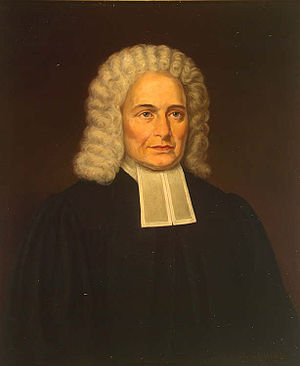
As we enter into the new year, many people will take time to consider what they have done, and plan for the future. That is what Samuel Davies, Great Awakening preacher and President of Princeton, did on January 1st, 1761. He preached a sermon that day at Nassau Hall in Princeton. His text was Jeremiah 28:16, in which the prophet declares a word from the Lord, that “this year thou shalt die, because thou hast taught rebellion against the LORD.” As Davies said, “While we are entering upon the threshold of a new year, it may be proper for us to stand, and pause, and take a serious view of the occurrences that may happen to us this year—that we may be prepared to meet them.” He pointed out that his hearers did know what would happen to them in the coming year. Everyone will die, but no one knows whether their time will be in the next year. Davies said:
This year you may die—though you may strongly hope the contrary, and flatter yourself with the expectation of a length of years. You will not perhaps admit the thought of a short abortive life; but notwithstanding this—you may be a lifeless corpse before this year finishes its revolution! …
If you should die in your sins this year—then you will not only be cut off from all the flattering prospects of this life—but from all hope entirely, and forever! You will be fixed in an unchangeable state of misery; a state that will admit of no expectation but that of uniform, or rather ever-growing misery; a state that excludes all hopes of making any accomplishment, except as the monuments of the vindictive justice of God, and the deadly effects of sin! …
[Y]our case is not yet desperate, unless you choose to make it so; that is, unless you choose to persist in carelessness and impenitence, as you have hitherto done. If you now begin to think seriously upon your condition, to break off from your sins, and attend in good earnest upon the means appointed for your salvation—then there is hope concerning you! Yes, miserable sinners! there is hope that this year, which now finds you in so deplorable a state—will introduce you into another state, under the blessing of God—safe from all danger, and entitled to everlasting happiness! … Does not the voice of reason, the voice of conscience, of self-interest and self-love, as well as the voice of God—direct you to choose a few serious, solemn, sorrowful, penitent hours now—rather than to forever regret your choice; and to purchase a few hours of presumptuous ease at the expense of a wretched, despairing eternity? Oh choose life, that you may live! While you indulge a trifling levity of mind, and a roving dissipation of thought—there is no hope you will ever seriously attend to your most important interest, or use the means of grace in earnest. Hence it is that I have made it so much my endeavor today to make you serious and thoughtful.
You can read the entire sermon here. Just over a month later, Davies would die. He was only 37 years old. Thinking back to the sermon that he had preached on New Year’s day, it was said that he preached his own funeral sermon.





